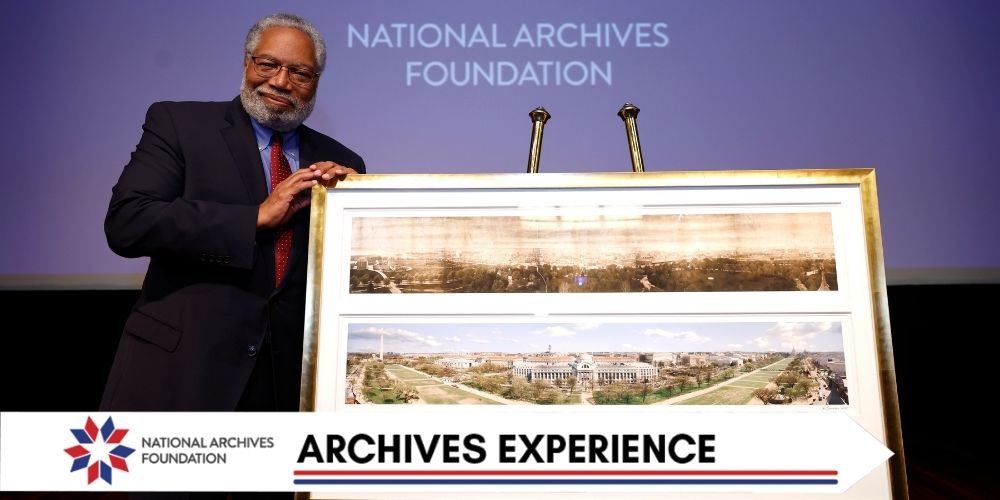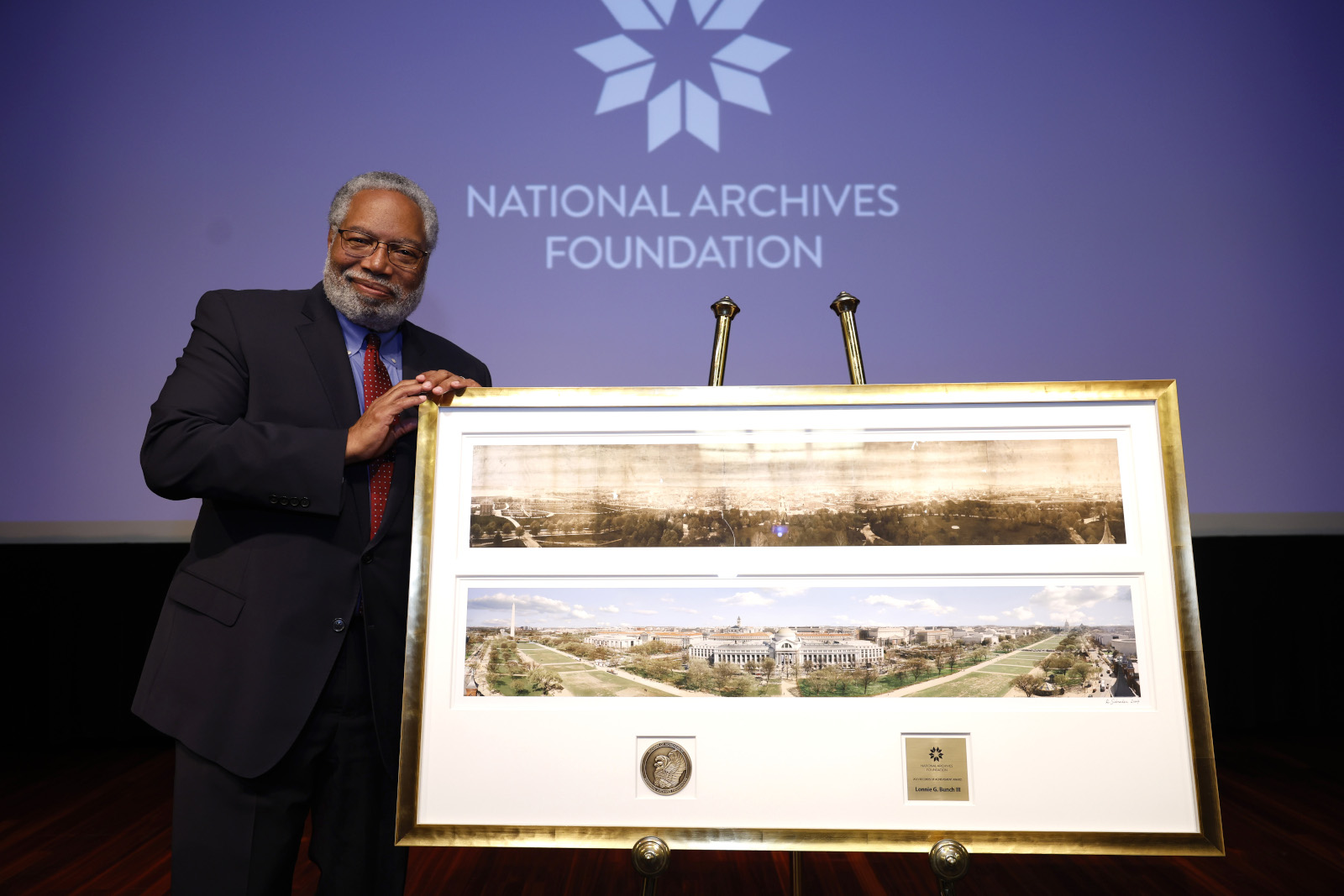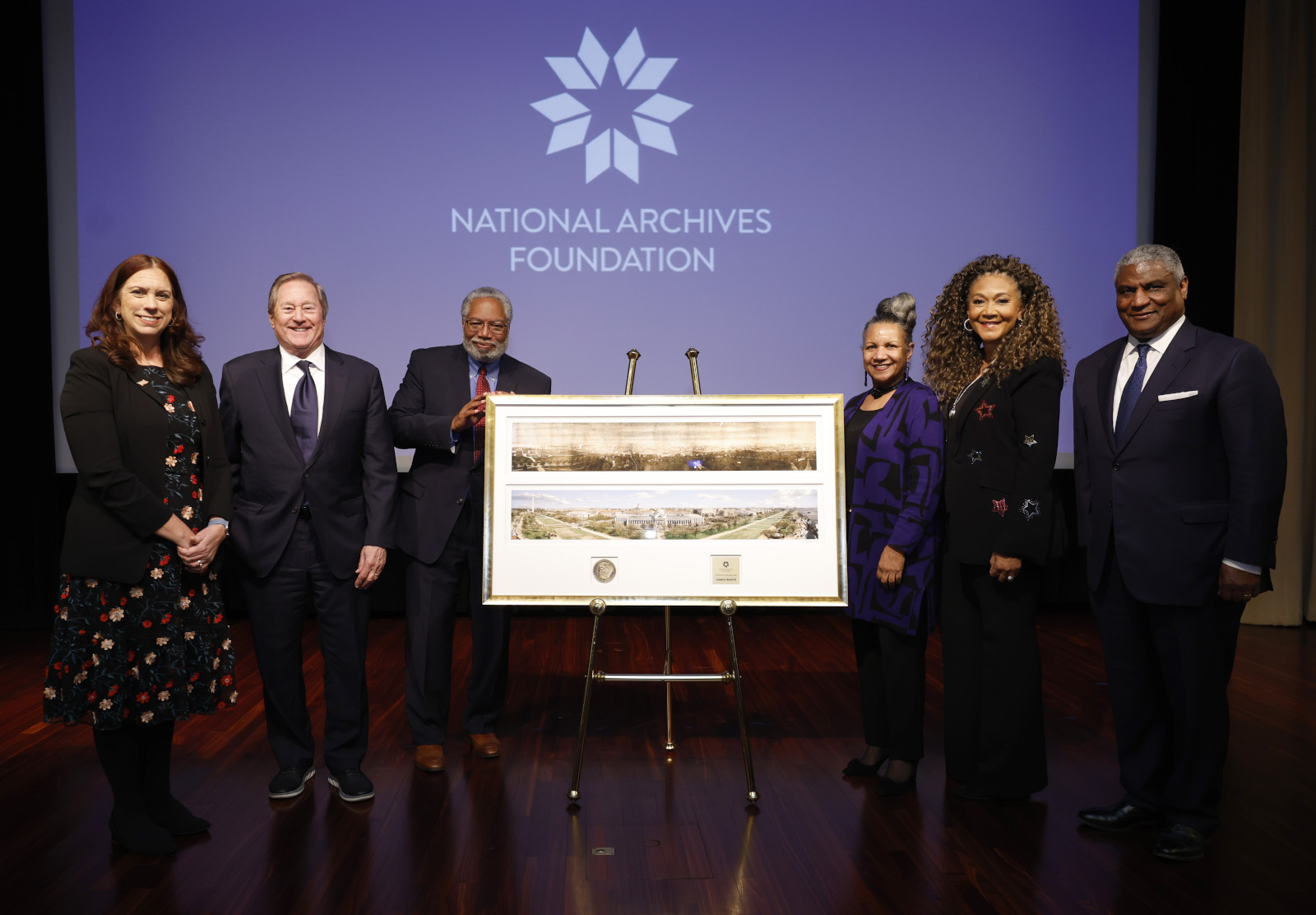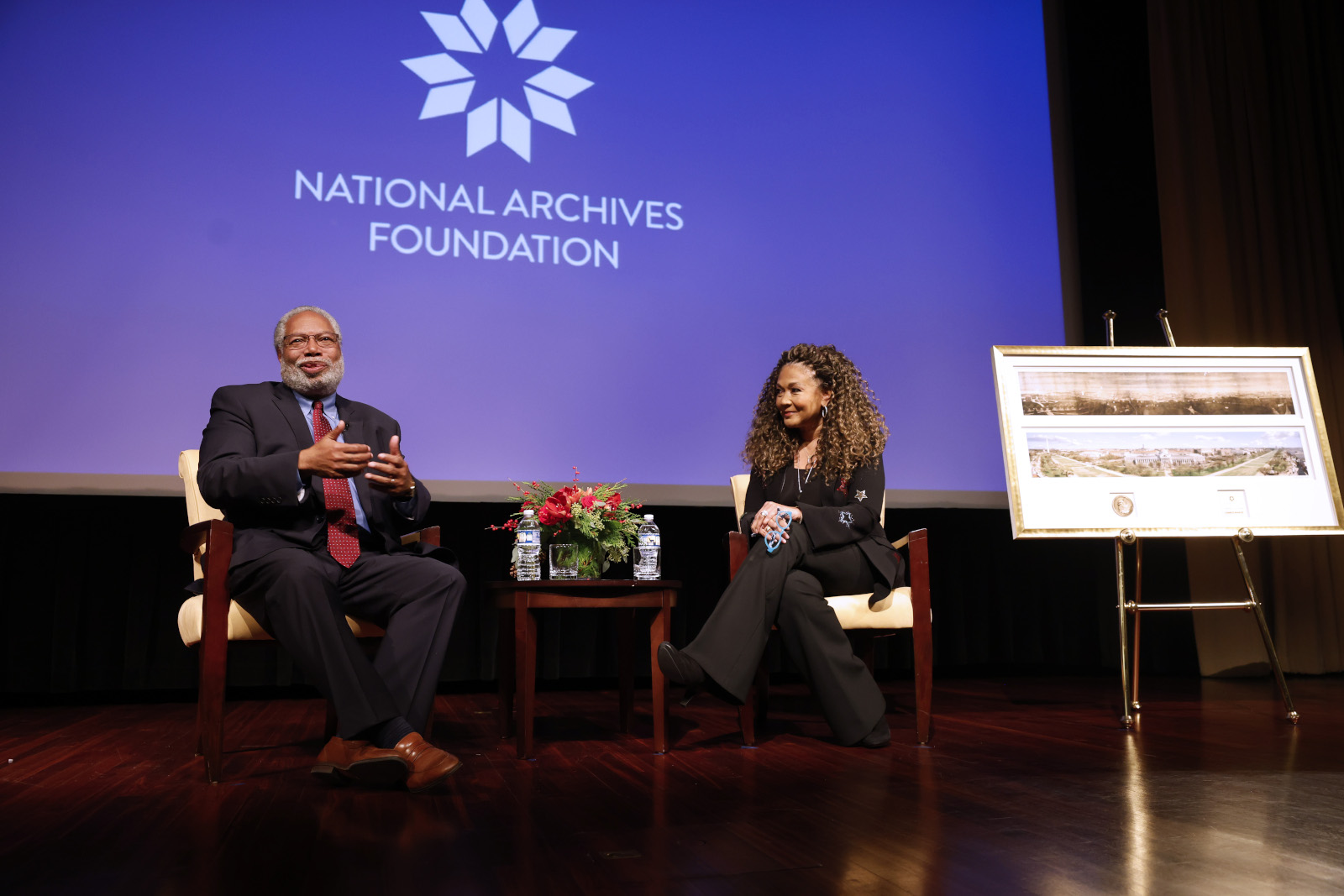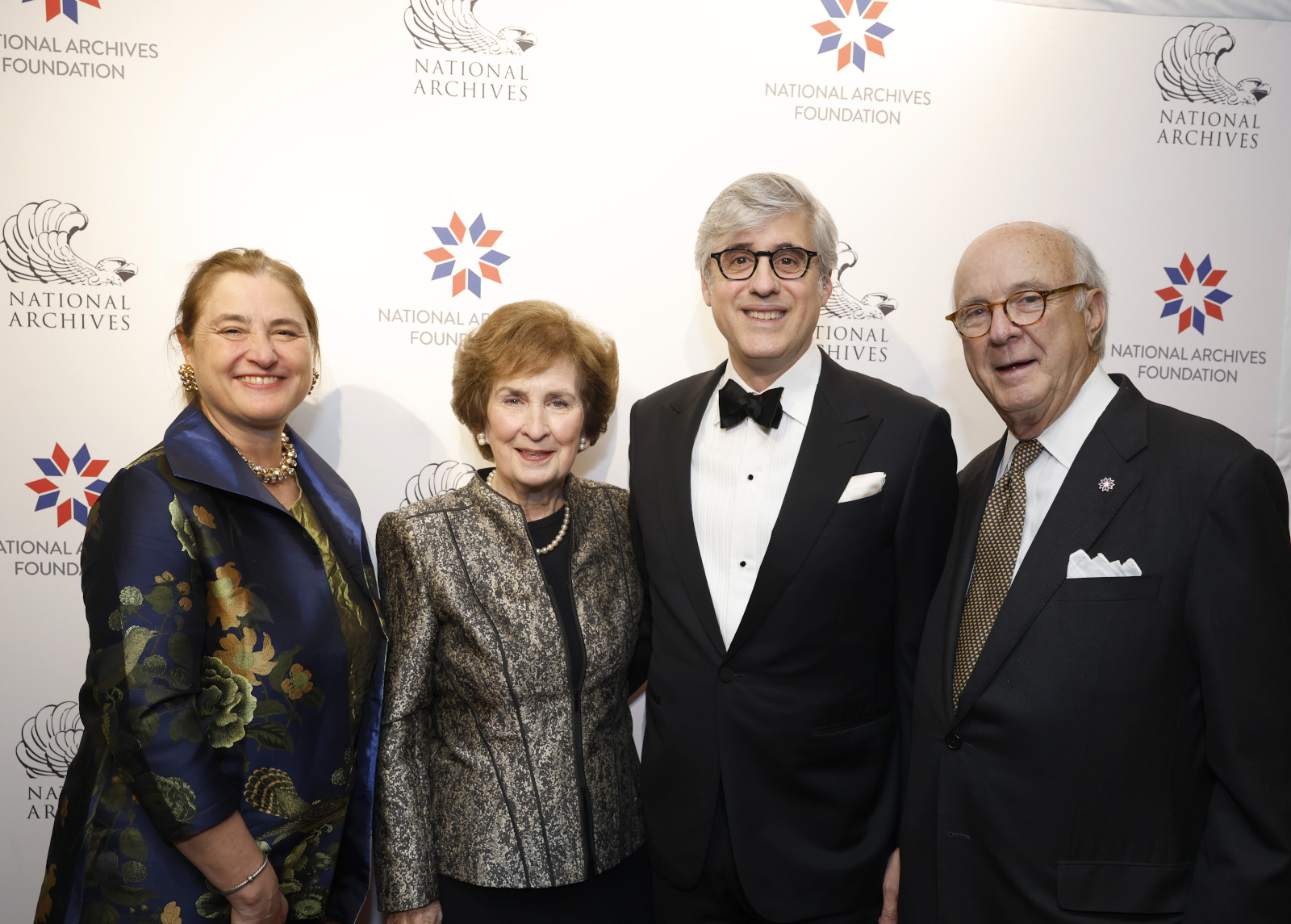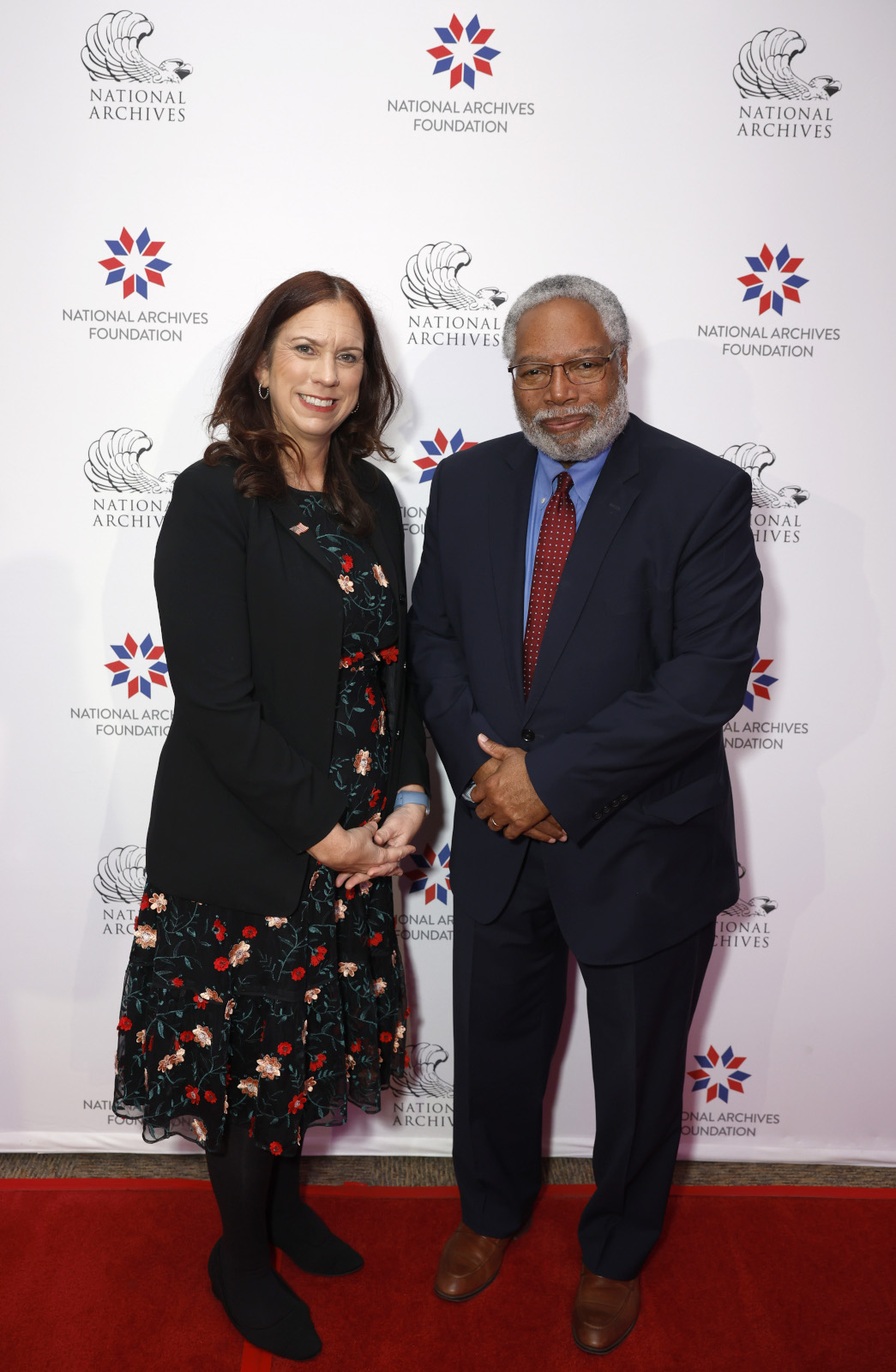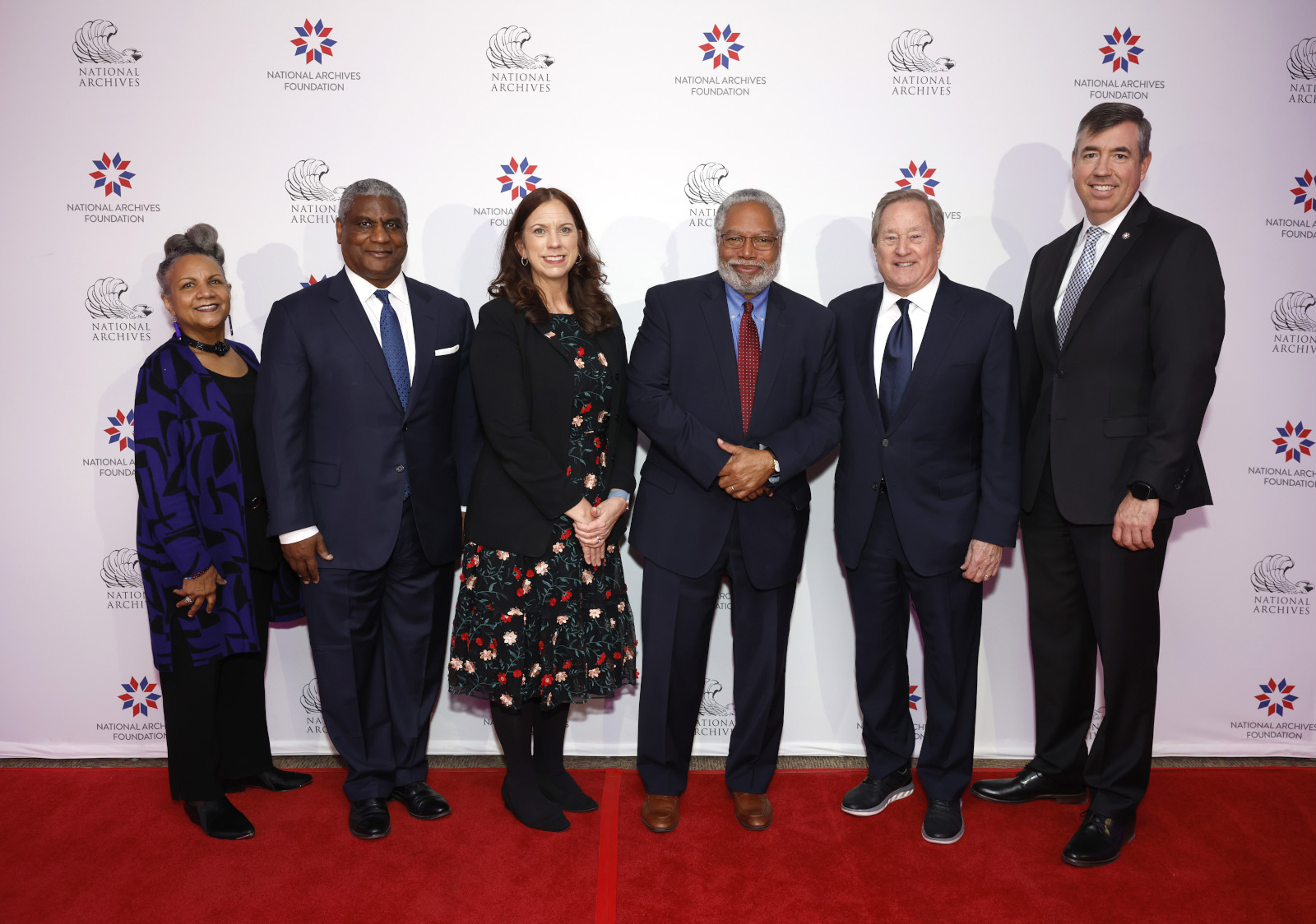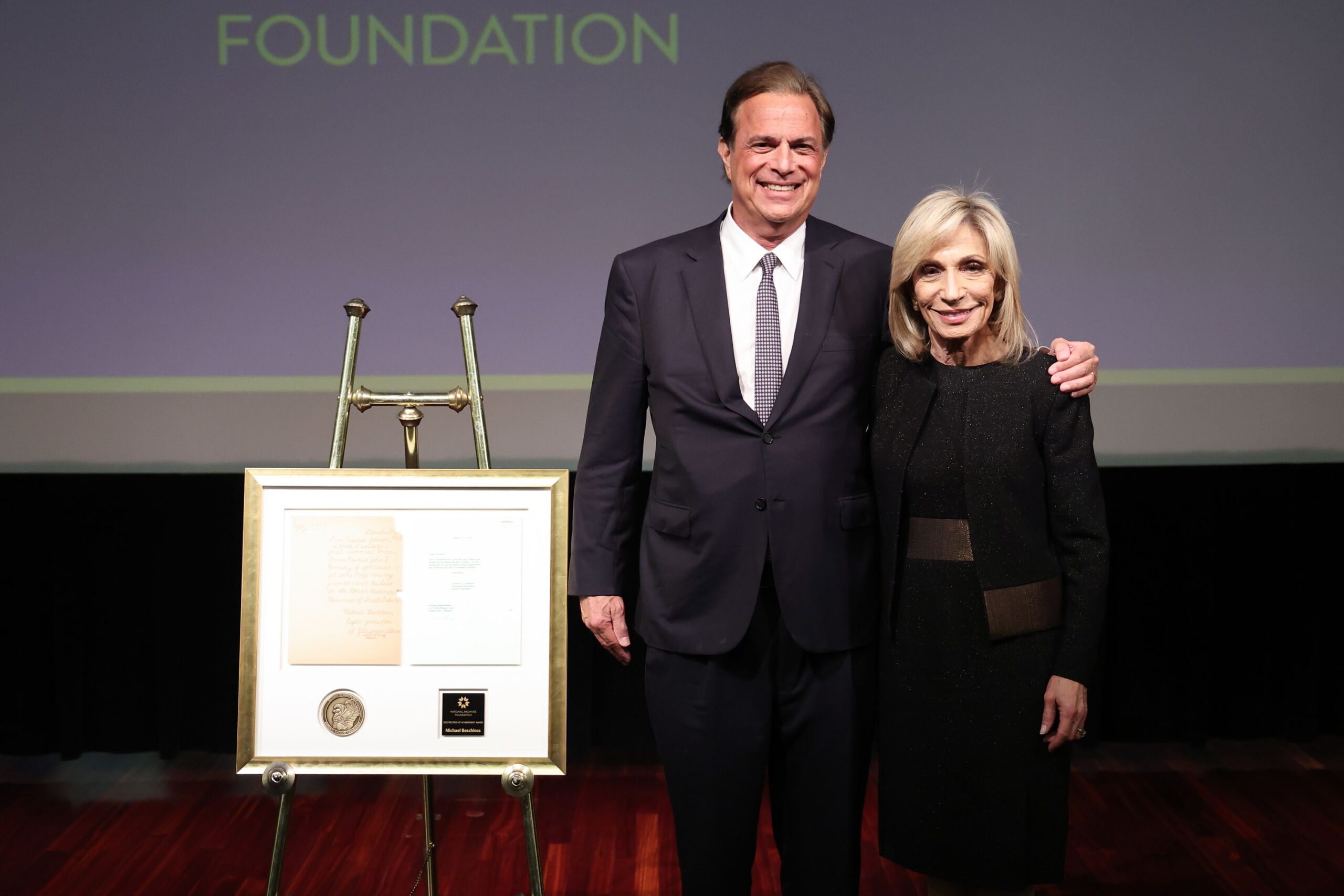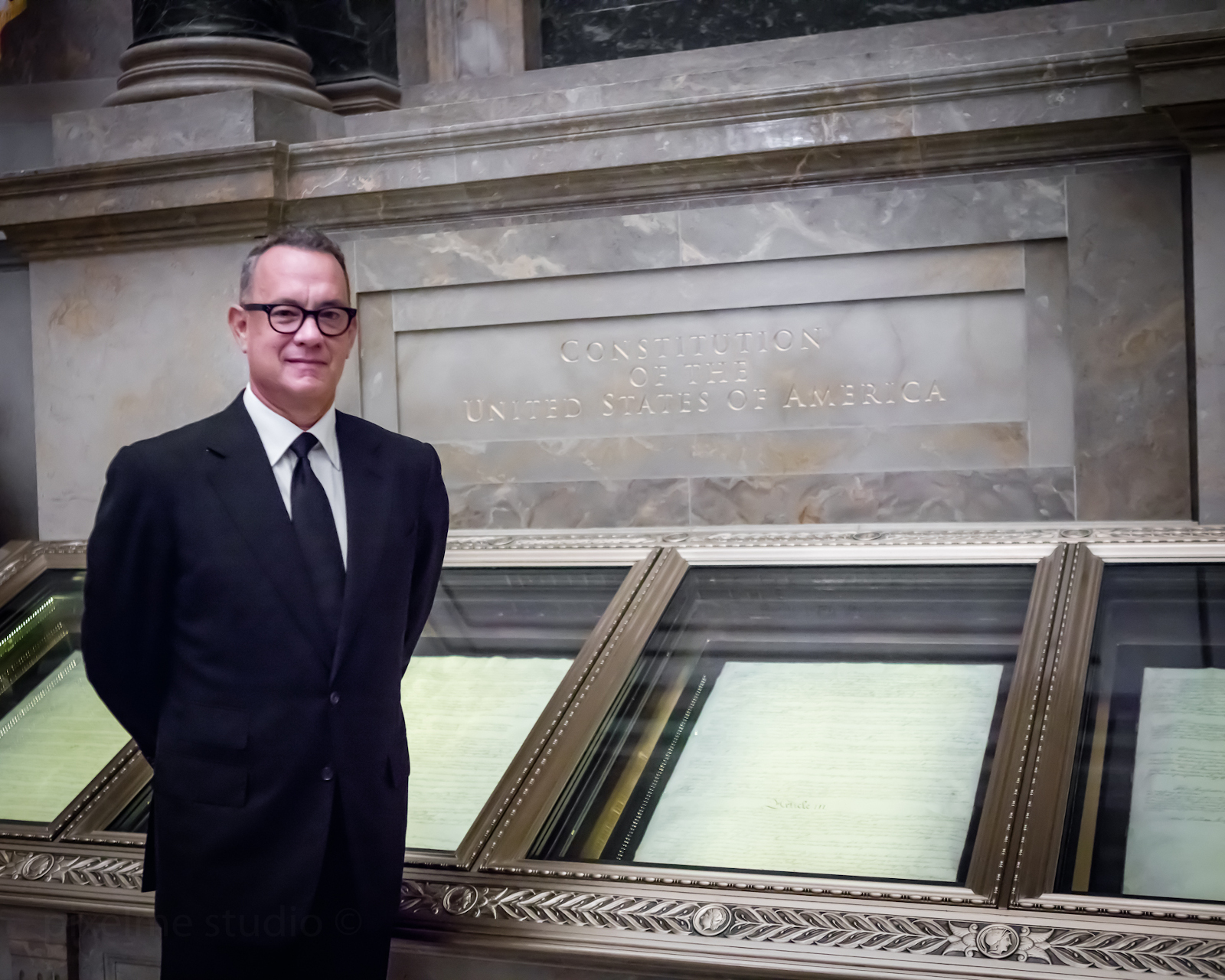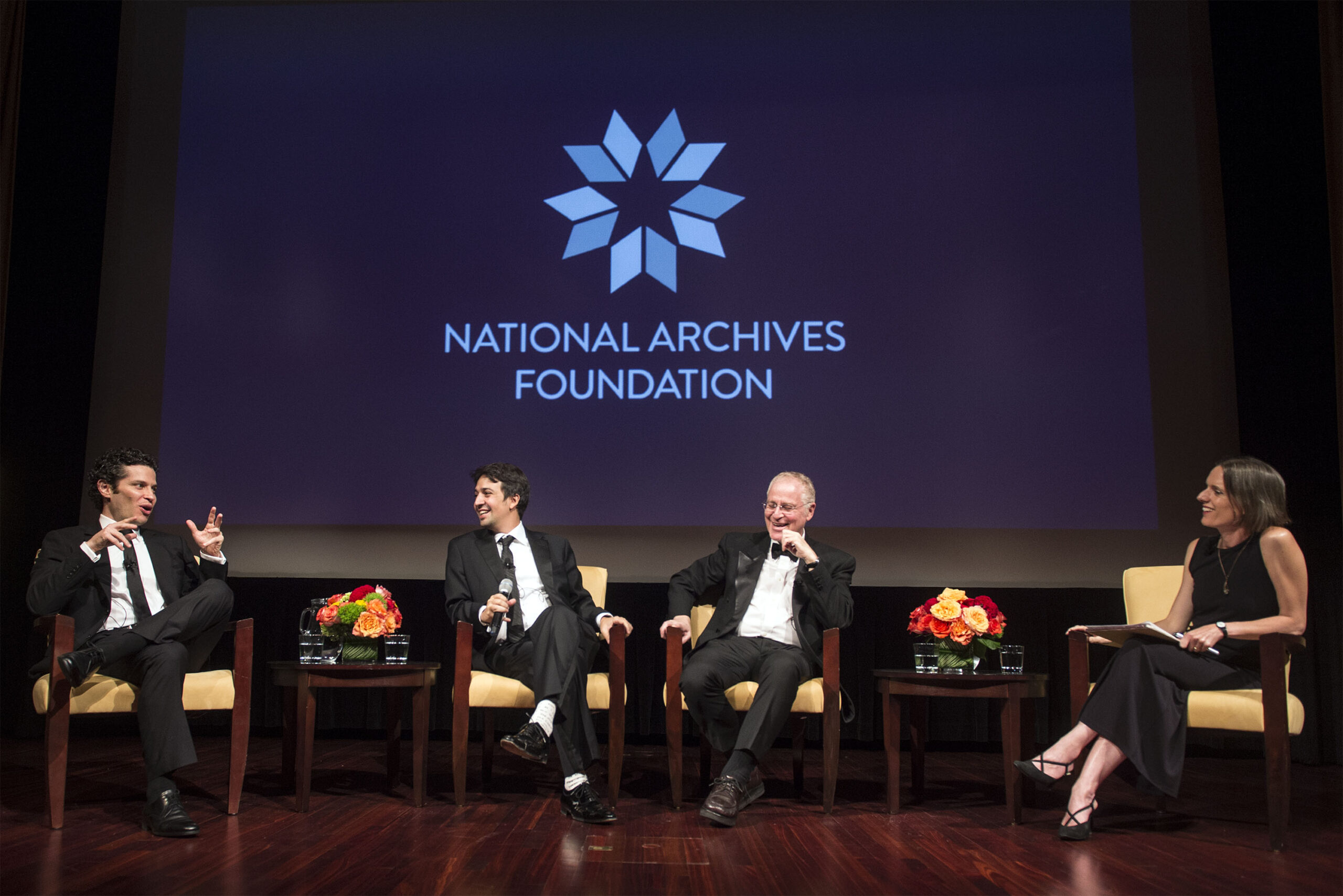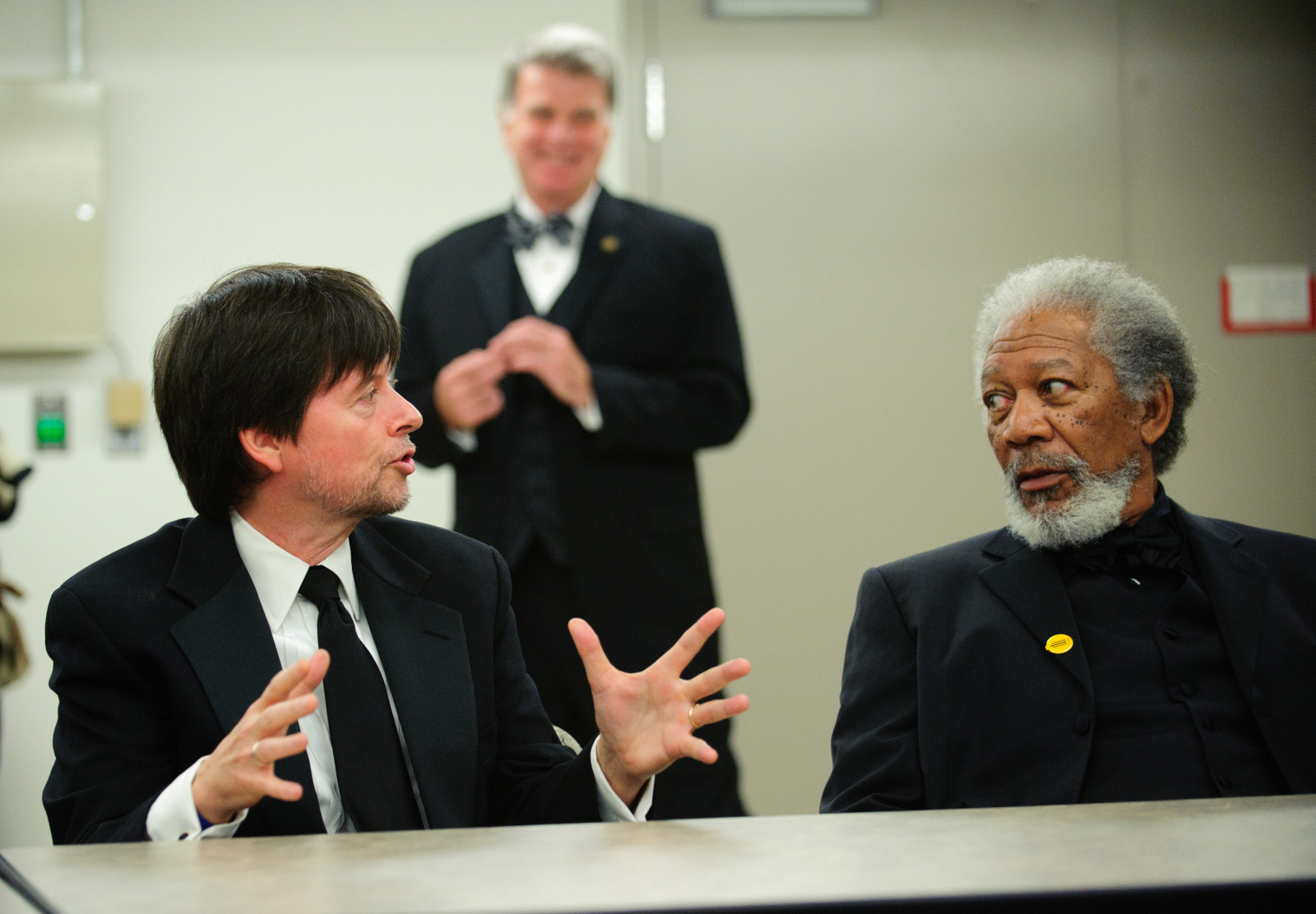Archives Experience Newsletter - December 5, 2023
Records of Achievement, the Highest Honor
Think of American history like an incomplete picture. Some stories, like those of our Founding Fathers, famous suffragists, or notable presidents are in vivid color, while lesser-told stories are just sketches. When it comes to filling in these blank spaces, the person holding the pen is critical. Lonnie G. Bunch III has dedicated his life to elevating the stories and contributions of Black Americans. From writing books to building museums from the ground up, he’s strengthened our understanding of who we are as a nation. That’s why the Foundation honored him with the our highest award…
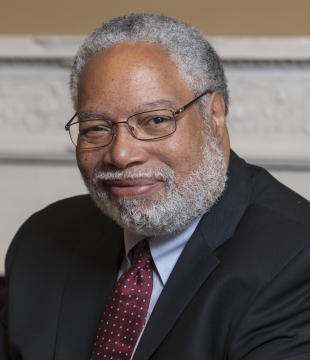
Lonnie Bunch III
Source: The Smithsonian Institution
Lonnie G. Bunch III, the distinguished American historian and scholar who shepherded the National Museum of African American History and Culture from concept to reality on the National Mall and who is now the 14th Secretary of the Smithsonian Institution, received the Records of Achievement Award from the National Archives Foundation on December 4, 2023. The award was presented at the Foundation’s annual Gala at the National Archives, which featured Mr. Bunch in an interview with author, journalist, and radio host Michele Norris.
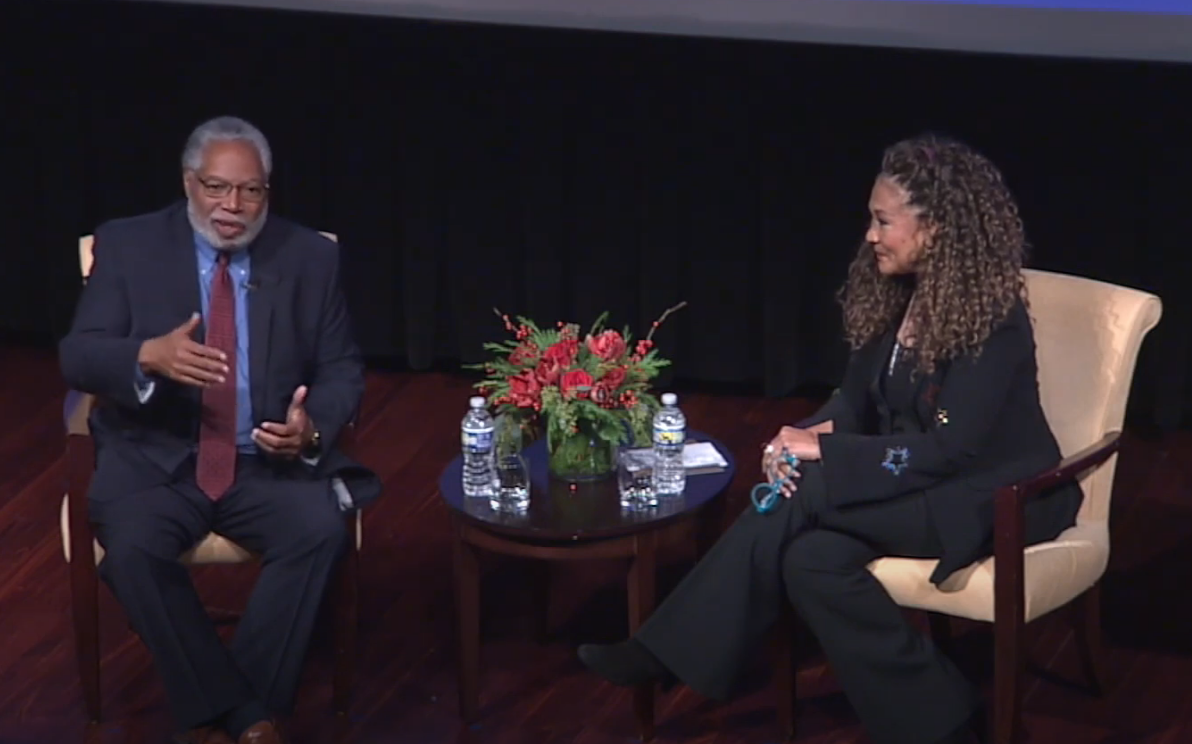
View the full
program video now
The National Archives Foundation bestows the Records of Achievement Award, its highest honor, to individuals whose contributions have fostered a broader national awareness of the history and heritage of the United States as exemplified in the National Archives’ records. You’ll probably recognize some of the past awardees: Michael Beschloss, the late Cokie Roberts, Tom Hanks, Steven Spielberg, Ken Burns, Annette Gordon-Reed, and the stars and creators of the Broadway musical Hamilton: Lin-Manuel Miranda, Thomas Kail, and Ron Chernow.
The grandson of a former sharecropper and the son of two teachers, Lonnie Bunch was raised in Belleville, New Jersey, the only Black child in an all-white town. Growing up, Bunch was tormented by some white kids and protected by others, experiences that made him think about “difficult questions about race and its ambiguities.” “I thought history would help me,” he said.
Bunch graduated from Belleville High School and went on to Howard University in 1970, transferring to American University in Washington, D.C., and earning a bachelor’s and a master’s degree from that institution. After a long career in curation and museum administration, he returned to Washington in 2005 to become the founding director of the National Museum of African American History and Culture. In 2019, he was elected Secretary of the Smithsonian Institution, the first African American to be so appointed.
Lonnie Bunch Tribute Video: 2023 Records of Achievement Award Ceremony and Gala
(8 minutes 19 seconds)
Source: National Archives Foundation YouTube channel
Established by an act of Congress on December 16, 2003, the National Museum of African American History and Culture (NMAAHC) opened to the public on September 24, 2016, but the intention to open a national museum devoted to African American history and culture in Washington, D.C., dates to 1915, when Black veterans of the Union Army met to mark the 50th anniversary of the end of the Civil War. The veterans formed a committee to urge Congress to build a memorial to the service of Black Americans to the country.
Congress eventually passed legislation in 1929 for that purpose, but it required private funding to get the memorial built, and the Great Depression put an end to that hope. More than 70 years passed before new legislation was finally enacted to make the museum a reality. When Lonnie Bunch was selected as the director of the museum, a site hadn’t even been identified. He had one other staff member, but no collections or funding.

A 1927 pamphlet to establish a memorial to African Americans
Source: NARA’s Prologue Magazine

1993 bill to establish an African American Museum within the Smithsonian
Source: NARA’s Prologue Magazine

National Museum of African American History and Culture Act, December 16, 2003 Cover page
Source: NARA’s Prologue Magazine

National Museum of African American History and Culture Act, December 16, 2003 Signature page
Source: NARA’s Prologue Magazine
The NMAAHC was the first museum to have a web presence before the physical structure was built, and it also served as the museum’s first exhibition. When the museum building opened in 2016, it was unlike any other on the National Mall. While some of the building adheres to the classical Greek architecture of many of the other buildings on the National Mall, the rest pays tribute to both Africa and the Global South. The “corona,” or top of the museum, is inspired by three-tiered crowns used in West African and Yoruban art, while the latticework that encircles the building pays homage to the ironworks created by the enslaved peoples of Louisiana and South Carolina. The museum’s entrance resembles a welcoming porch, which has a long history in both the Global South and throughout the African diaspora.

NMAAHC
Source: The Smithsonian Institution
To celebrate the NMAAHC’s opening, the National Archives Museum displayed the 1927 plan for the museum and the 2003 Act of Congress that officially established it in the East Rotunda Gallery. Since its opening in 2016, the museum has welcomed more than eight million people through its doors.
The medallion given to Records of Achievement awardees is made from the bronze document encasements that were removed from the Rotunda upon its renovation in 2003. Along with the medal, awardees are gifted facsimiles (copies) of documents that are meaningful to them and their work. Historian Michael Beschloss received letters he wrote to President Johnson when he was eight years old; author Jon Meacham received a letter from Dolly Madison; Tom Hanks, renowned actor, is a collector of typewriters, and received patents for the first commercially successful typewriter; and the team behind Hamilton received a copy of his Oath of Allegiance, taken at Valley Forge in 1778 when he was General Washington’s aide de camp. Mr. Bunch is receiving two panoramic photos of the National Mall, both taken from the roof of the Smithsonian Institution Building (the Castle). The first is from 1881, and the second from 2004.
The Records of Achievement Award is a celebration and a reminder of the importance of the role of historians in American society. By studying and reminding us of our collective past, they keep us connected with our most precious memories and our deepest sorrows. They remind us of our worst mistakes and our greatest triumphs. And although they may sometimes point out to us uncomfortable truths, they also sometimes save us from ourselves.
Records of Achievement Award 2023: A Conversation with Lonnie Bunch and Michele Norris
(35 minutes 54 seconds)
Source: National Archives Foundation YouTube channel





